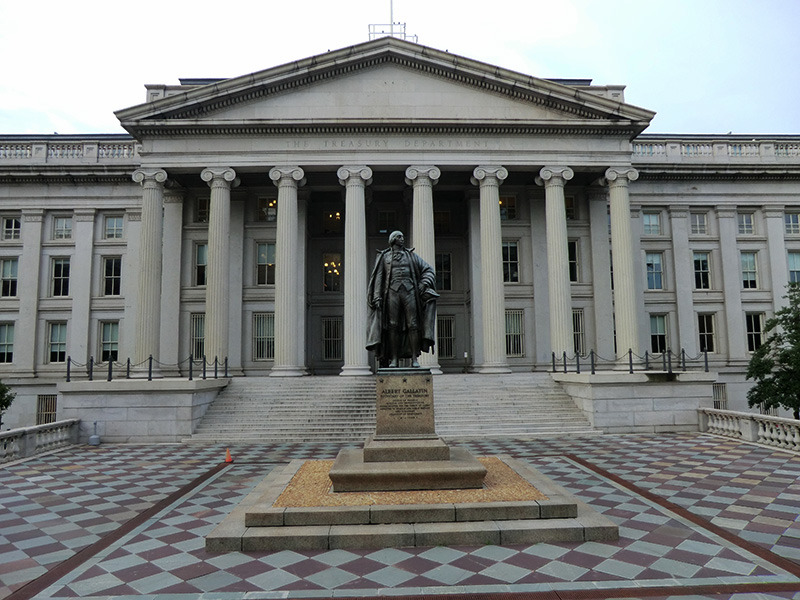US paid Apple at least $600M on foreign cash held as bonds since 2012
Although technically refusing to repatriate its international revenue to avoid taxes, Apple is actually keeping much of it in the U.S. in the form of bonds — and generating interest in the process, a report pointed out on Wednesday.
The U.S. Treasury Department has paid Apple at least $600 million in interest during the past five years and possibly far more, according to regulatory filings seen by Bloomberg. The company is taking advantage of an exemption which lets corporations dodge or delay repatriation taxes by buying treasuries, in this case pulling in taxpayer money instead of paying liabilities.
The interest is taxable, however, and Apple would also owe money if it sold the bonds.
Apple is believed to be one of the biggest corporate recipients of interest from the U.S. Treasury. Cisco, for instance, has pulled in $430 million since 2012, but one of Apple's main rivals — Google — has taken in a comparatively small $150-160 million. Some companies, like Microsoft and Coca-Cola, don't provide enough detailed accounting to track these figures.
Over 90 percent of Apple's $238 billion in cash reserves has been classified as "overseas." The company holds $41.7 billion in U.S. bonds — while much of the rest is officially attached to its Irish subsidiaries, in reality it's being held custodial accounts with U.S. banks like J.P. Morgan Chase and State Street, simply unable to be spent unless Apple is willing to pay the taxes owed.
During his election campaign, President-Elect Donald Trump promised a one-time tax holiday of 10 percent — down from the nominal 35 percent — as a way of encouraging U.S. multinationals to repatriate cash. It remains to be seen if Trump will follow through on that pledge, and critics have worried that businesses will simply direct the money to shareholders and executives, rather than spending on jobs and expansion — as happened after a 2004 tax holiday created by President George W. Bush.
 Roger Fingas
Roger Fingas











 Mike Wuerthele
Mike Wuerthele

 Malcolm Owen
Malcolm Owen
 Chip Loder
Chip Loder

 William Gallagher
William Gallagher
 Christine McKee
Christine McKee
 Michael Stroup
Michael Stroup







18 Comments
Apple is a good corporate citizen of the United States. And a good corporate citizen to the planet as well. Not by accident, their financial leaders are the cream of the crop when you consider how they leverage Apple.
once again A+ management by Cook and Company.
not perfect of course!
Anyone anywhere in the world can invest in our Treasury bonds. If China can, why can't Apple's cash held abroad?
I don't understand why this remotely rises to the level of "news".
Add: But it does point to the utter vacuity and hypocrisy of our tax laws. If, instead of investing in the governbment's bonds, Apple had tried to use those funds to invest in, say, building a factory in the US, it couldn't do so unless it paid corporate taxes on that cash at the usuriously higher US rate.
Unitary taxation. End of.